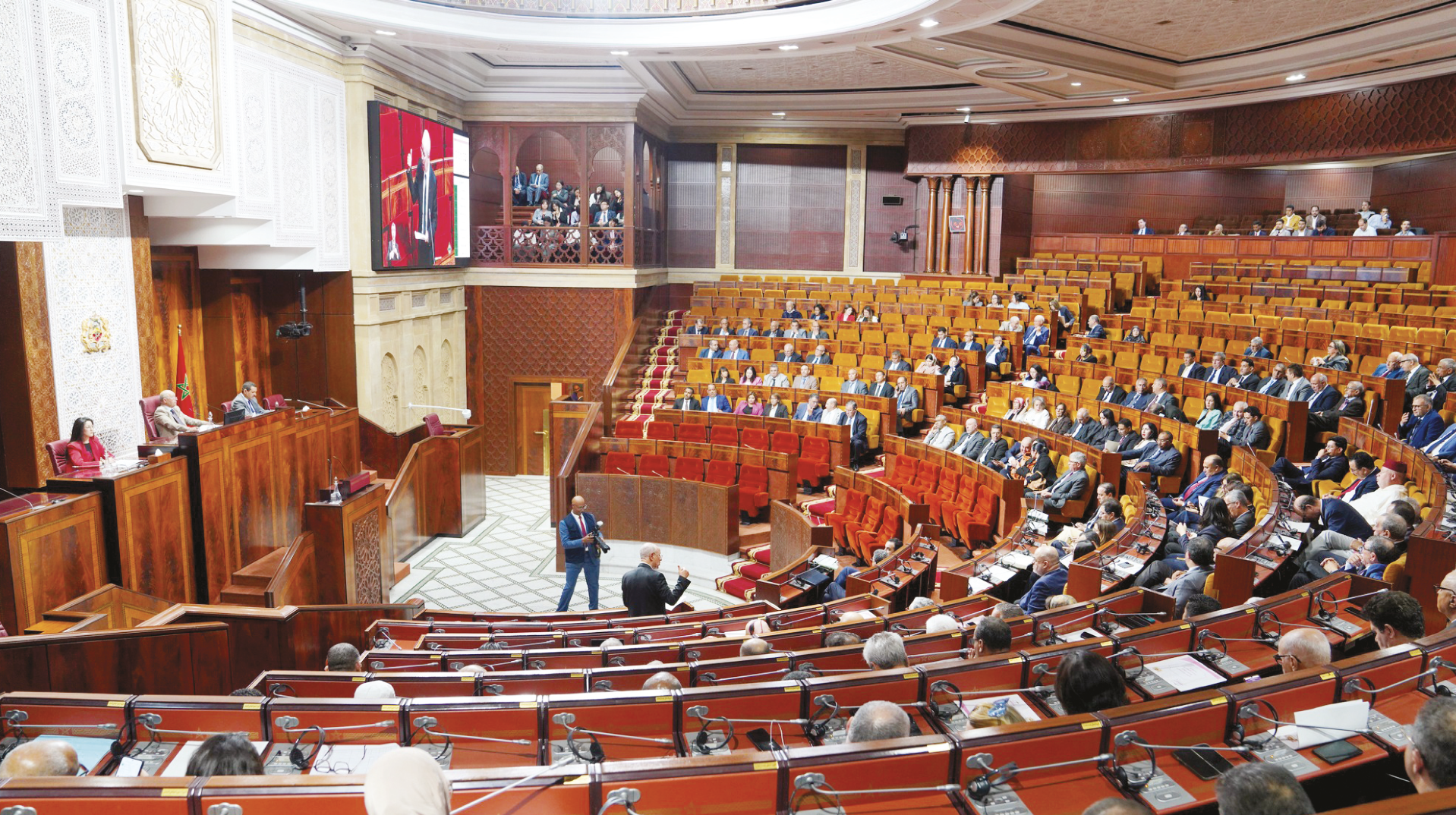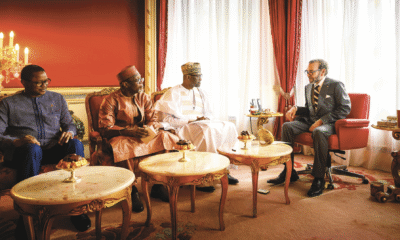Kingdom
Justice Reform: CESE, INPPLC, CNDH… — The Entities Shaping the Debate
As Opposition Parties Fade, Constitutional Institutions Fill the Void — Not by Design, But by Default in a Political Vacuum.

In the absence of meaningful opposition engagement, constitutional institutions now steer public debate. It’s easy to hurl accusations at the government, condemn it as a total failure, and attempt—while fully aware of lacking the means to succeed—to destabilize it with stillborn projects, motions of censure, parliamentary inquiry commissions, or calls for strikes…
But the real challenge lies in confronting it point by point and proposing alternatives to current policies and implemented measures. It is precisely in this context, and because nature abhors a vacuum, that constitutional institutions step into the fray—or rather, into action. The parliamentary committee debates over the bill to reform the Civil Procedure Code offer a concrete example.
This debate also highlights the complementary roles of these institutions, though in this specific case, the shared principle is ensuring legal access to fair justice for all citizens.
Beyond the text itself, this reignites a foundational debate about judicial reform—years after its initial implementation. A seminal discussion touching on the right to justice, associational rights, judicial independence and prerogatives, anti-corruption efforts, and the principle of correlating accountability with responsibility, among other issues.
That constitutional institutions have now taken the lead in public debate over political parties, particularly the opposition, is not due to a lack of qualified leaders. Far from it. It stems, one might argue, from political and electoral opportunism.
Such substantive debates, though vital for society, rarely yield electoral rewards. After all, aren’t the heads of certain constitutional institutions—like the CNDH, Médiateur du Royaume, CESE…—former members of the USFP or even the PJD, two parties now in opposition?
Proposals and Recommendations
In a report containing nearly a hundred recommendations addressed to Parliament, the National Human Rights Council (CNDH) emphasizes anchoring the principle of the rule of law while advocating for a careful balance between measures impacting rights, freedoms, equality before the law, and the imperatives of transparency, accountability, and responsibility.
Fully aligned with its mandate, the Council also addresses guarantees for defendants’ rights and the right to a fair trial, urging lawmakers to reconsider police custody procedures to shorten their duration. The CNDH, while promoting a humanist vision of criminal justice, calls for a more inclusive legal framework that accounts for vulnerable groups.
The National Anti-Corruption Authority (INPPLC), in its role as a good governance institution, urges protections for whistleblowers and opposes restrictions on victims of corruption or civil society associations’ right to act as civil parties. It also stresses strengthening the public prosecutor’s role in combating corruption. The INPPLC has pushed for revitalizing mechanisms to report and detect corrupt acts, as well as prosecuting their perpetrators.
The Authority argues that preserving—and even enhancing—the public prosecutor’s power to conduct investigations and initiate prosecutions in corruption cases is essential to invigorating the fight against this scourge. Similarly, it recommends revisiting the statute of limitations for corruption offenses.
As for the Economic, Social, and Environmental Council (CESE), in an opinion submitted to the legislature, it outlined proposals on both form and substance, rejecting certain provisions and opposing their linkage to regulatory texts. It advocates for sanctions to be codified in the Penal Code rather than criminal procedure law.
The CESE focused particularly on provisions governing investigations and the initiation of public prosecutions for offenses involving public funds. It highlighted the need for coherence between criminal policy, public governance strategies, anti-corruption efforts, and compatibility with the Criminal Procedure Code and other laws.
The opinions and recommendations of these institutions vary according to their respective mandates but converge on a shared goal: advancing judicial reform and refining the justice system.
Of course, everyone agrees that this high-caliber public debate, driven by constitutional institutions, should not be interpreted as interference in legislative prerogatives or as influencing the review of draft legislation in any way.
After all, it is parliamentarians who legislate—a power no one disputes. Fair enough, but exercising it in an informed manner would be even better. Hence the value of broadening such public debate to include all stakeholders.
Uproar and More Uproar
This is a headlong rush. Every party indulges in its own whims. Some brandish the threat of a motion of censure—even with no chance of success—simply to keep themselves in the spotlight.
Others, ideologically fixated and obsessed with events thousands of kilometers away, opt for a shortcut: outright demands for early elections. They’re racing against time, fearing the wave they’re riding now may fade within a year—or less.
Still others aim to turn parliamentary inquiry commissions, not into tools for uncovering truths, but into political bargaining chips. All while knowing these mechanisms are cumbersome, with investigations that could drag on for months.
A godsend for parties eager to dominate headlines throughout this pre-election period. Then, they’ll capitalize on the outcomes—whatever their nature. After all, they’re adept at twisting data and facts to their advantage, relentlessly vilifying the government and its majority.












